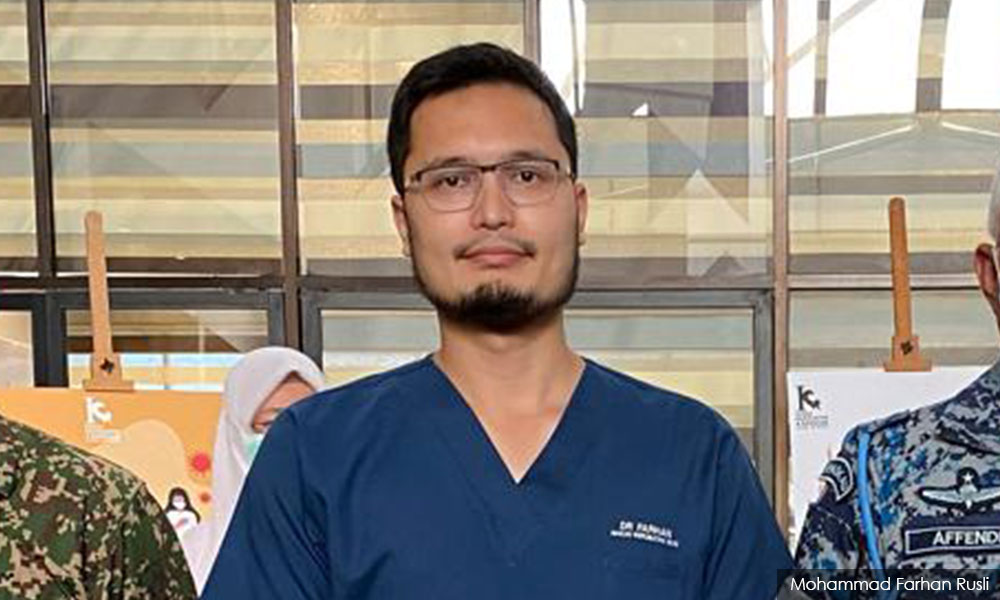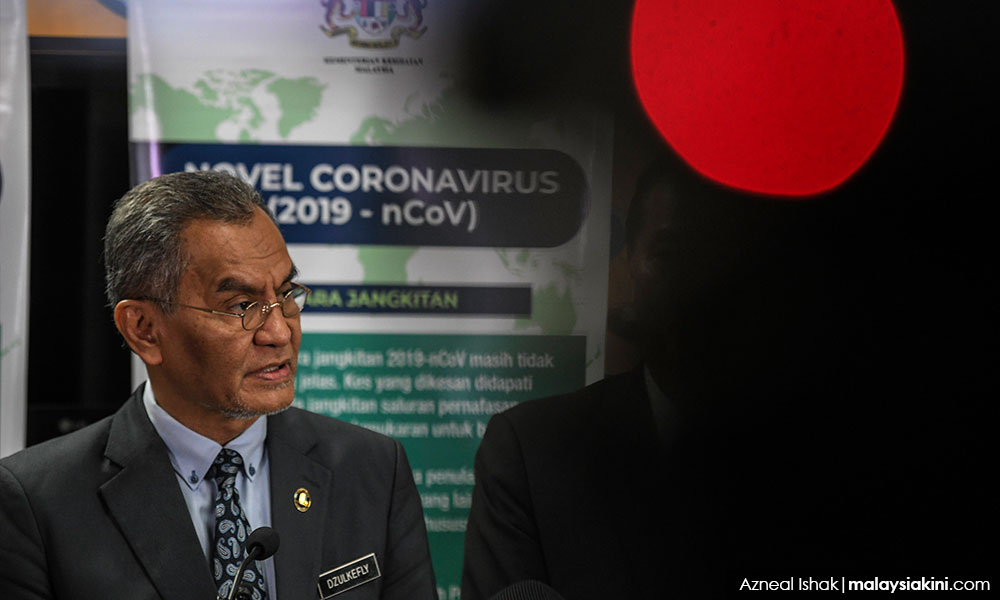The Health Ministry on Wednesday rolled out a new procedure in Covid-19 contact tracing where testing is done only for close contacts who are symptomatic.
Its implementation came on the same day six states were again placed under a lockdown, dubbed the movement control order (MCO), and at a time when a state of emergency was declared, which the government claimed was to fight the pandemic.
As the country's health system is reportedly at a breaking point and struggling to cope with the number of Covid-19 patients, health experts warn that reducing the number of tests would only worsen the situation rather than improving it.
Criticising the new plan, they said this new approach by the Health Ministry might only make the number of cases look better on paper when the reality could be the opposite.
"Singling out only symptomatic cases will lead to undiagnosed cases. As we know, more than 90 percent of cases are asymptomatic.
"These are the silent walkers who may go back to their hometown, meet elderly people and get those people infected. It is not a wise decision. Instead, it is very foolish and dangerous," said public health expert Dr Mohammad Farhan Rusli.
Farhan, who is a member of the Selangor Task Force on Covid-19, said the government should be embarking on ramping up testing rather than dialling it down.
To bolster his point, the doctor and academician relayed his experience when he was involved in a mass testing exercise at the Selangor Mansion in Jalan Masjid India, Kuala Lumpur last year.
The flat was placed under an enhanced MCO after a large number of positive cases were detected among its residents, many of whom were foreign workers.

Farhan (photo) said that the health team camped on site for six weeks to test each and every resident. They found new cases even on the very last day of the enhanced MCO.
"If we are to learn from the previous MCO, silent asymptomatic positive cases pose a real danger to the general public.
"MCO 2.0 must be used wisely to conduct targeted mass testing utilising the FTTIS Model (Find, Test, Trace, Isolate and Support)," he stressed.
Asked on his expectation about the Health Ministry's new plan, Farhan said that lowering testing would make whatever number that the authority reports "a fallacy".
‘Only Trump is pushing to reduce testing’
Another health expert told Malaysiakini that he could not understand the logic behind the Health Ministry's decision to stop testing asymptomatic individuals.
"I do not know any country that is not testing asymptomatic individuals. I think only (US President) Donald Trump was pushing for it. The UK, Europe, Australia, South Korea, Taiwan... Every country that has good health services are testing.
"So this is against (medical) philosophy and thinking," said the health expert, who is a medical consultant.
The doctor had requested anonymity for fear of repercussions from the authorities for criticising their decisions.
According to him, reducing testing would falsely give the idea that the number of cases in Malaysia has gone down when it isn't.
Worse, less testing can potentially grow the actual number of positive individuals.
"It is recommended that we test widely. If you want to have MCO, then you must test widely. But we are not doing wide testing. Instead, what we are doing now is imposing MCO and at the same time, we narrow our testing.
"I don't understand the logic. So yes, I expect we can actually grow the epidemic, not minimise it."
Former health minister Dr Dzulkefly Ahmad also shared similar concerns on this new strategy.

Taking it to Twitter on Thursday, he said failure to test both symptomatic and asymptomatic individuals may lead to the Health Ministry missing individuals who are 'superspreaders'.
"Ask (any) public health experts, this is wrong and against science. Sorry!" he tweeted.
Dzulkefly, who is Kuala Selangor MP, said the government should be increasing testing and not reducing it.
According to him, the Covid-19 positivity rate is currently at around 8.2 percent, and this should be reduced to less than five percent.
In a subsequent post, he suggested the government to boost the number of its public health frontliners to do case investigations, contract tracing, community testing, and managing quarantine.
In a circular issued on Wednesday, the ministry said that only close contacts who are showing symptoms of the virus would be tested. In the case of a cluster, testing would only be done to a percentage of those identified as at risk. - Mkini



No comments:
Post a Comment
Note: Only a member of this blog may post a comment.